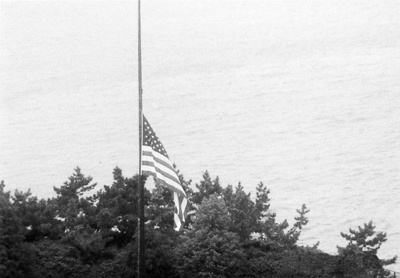All Nonfiction
- Bullying
- Books
- Academic
- Author Interviews
- Celebrity interviews
- College Articles
- College Essays
- Educator of the Year
- Heroes
- Interviews
- Memoir
- Personal Experience
- Sports
- Travel & Culture
All Opinions
- Bullying
- Current Events / Politics
- Discrimination
- Drugs / Alcohol / Smoking
- Entertainment / Celebrities
- Environment
- Love / Relationships
- Movies / Music / TV
- Pop Culture / Trends
- School / College
- Social Issues / Civics
- Spirituality / Religion
- Sports / Hobbies
All Hot Topics
- Bullying
- Community Service
- Environment
- Health
- Letters to the Editor
- Pride & Prejudice
- What Matters
- Back
Summer Guide
- Program Links
- Program Reviews
- Back
College Guide
- College Links
- College Reviews
- College Essays
- College Articles
- Back
Ashamed to be American? MAG
American culture is obsessed with patriotism. Most of this is completely innocent – images of the American flag, baseball, apple pie, and the iconic bald eagle. Yet these symbols of American pride are masking something more sinister. Our egocentrism blinds us to the fact that we are not the greatest country in the world, but rather one with many problems that need to be fixed.
For example, some Americans have yet to realize that our country is still extremely racist. Many seem to believe that when President Johnson signed the Civil Rights Act of 1964, racism magically ended along with segregation – as if all that was needed to erase centuries of tension was a mere signature. But in 2015, racism is still prevalent in our society. The Mike Brown, Eric Gardner, and Tamir Rice cases clearly demonstrate that our law enforcement system is corrupt with not only brutality but prejudice. I have black friends who are petrified of wearing hoodies at night because they are afraid of being labeled thugs and being attacked by the police. A classmate told a story about how a police car would follow her father every morning while he jogged through his neighborhood.
Prejudice isn’t just confined to the police, however. One of my teachers once claimed that a rival school had better test scores because it had more white students. When someone was talking about a teenage girl who was pregnant, another replied, “Well, she is Mexican.” I once overheard a group of people, people I considered friends, making a joke about a Muslim girl hiding a bomb in her hijab. Sadly, racist and Islamophobic comments like these are commonplace in America.
Another kind of prejudice that runs rampant in American society is sexism. It is often forgotten that women only gained the right to vote a hundred years ago. Until 1993, it was completely legal for husbands to rape their wives without being punished. Today, women are still treated as lesser than men. In 2013, women earned 78 cents compared to every dollar men earned. According to the Institute for Women’s Policy Research, women will reach pay parity with men in 2058. Our generation will be nearing retirement by then! Our health care decisions are also subject to the opinions of our lawmakers – mostly rich, white men who will never experience any women-specific health issues. In fact, women make up only 19.4 percent of Congress.
At the annual ceremony during which my school outlines the rules for the year, 20 minutes and multiple PowerPoint slides were dedicated to the school dress code. Sexual harassment punishments, however, only got a measly paragraph. This problem is just a symptom of the rape culture America has adopted – women’s clothing choices become an issue in rape allegations. Often the first question a girl is asked when she reveals that she was raped is “What were you wearing?” In America, a short skirt and high heels are viewed as an invitation for rape. A boy at my school said that his favorite Disney princess was Ariel because she was “half-naked and passed out.” Is rape really something to joke about?
While LGBT rights have made substantial gains in recent years, homophobia is yet another issue plaguing the land of the “free.” Only 14 states have not made the move toward marriage equality, but that doesn’t mean homophobia has been eradicated. Gay men still face stigma when donating blood due to the “population’s high risk for AIDS.” Transgender teens are still denied the right to exist openly – an issue that gained national attention with the tragic suicide of Leelah Alcorn, a 17-year-old transgender teen from Ohio. Sex education still blatantly ignores gender, leaving teens who may not fit the traditional gender labels confused and vulnerable.
Given these issues – which are sadly only the tip of the iceberg, because I’ve failed to mention immigration, gun control, health care, and other pressing problems – I feel uncomfortable proclaiming loudly that “I’m proud to be an American!” How can I profess unbridled love for my country when I’m sickened by its internal problems?
Of course, I am aware that I’m extremely privileged to have the freedoms that I have, and I’m not taking them for granted. But I am not overflowing with pride to be an American. I’m indifferent to my nationality. It is simply a fact about me, like my blonde hair and green eyes.
When America collectively makes a conscious effort to fix the long list of problems we have, I will never stop talking about how proud I am to be an American.

Similar Articles
JOIN THE DISCUSSION
This article has 2 comments.
